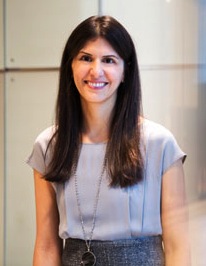
Healthbox CEO Nina Nashif
After bringing their incubator to Europe last year, Healthbox has announced that its next class will be based in Jacksonville, Florida, sponsored by Florida Blue. Like Healthbox's previous locations in Chicago and Boston, companies will receive $50,000 in seed capital and participate in a 16-week program. Healthbox will receive 7 percent equity in the companies.
As health-based accelerators proliferate, location has emerged as a way to stand out from the crowd, while promoting mobile health entrepreneurship all over the country. But different regions still have different needs and advantages. When TigerLabs Health launched, for instance, they promoted their New Jersey location and their proximity to major pharmaceutical companies. Healthbox sees Florida as a ripe and supportive environment for health startups.
"As you might know, we've run three programs over the past year, and what we've figured out is it takes a really present ecosystem to allow companies to flourish and make the most progress," Jill Seidman, director of the Florida program, told MobiHealthNews. She said the state is home to innovative hospitals, active payers, and large Fortune 500 companies with a lot of employees -- all good opportunities to test new mobile health products and services. Both Scripps Health Center and Mayo Clinic have Florida campuses (Mayo's is in Jacksonville), and Florida sports a number of University-based health centers like the University of Florida's Shands Health Center.
"There are a lot of organizations already there and we can be complementary to their research and innovation efforts," Seidman said.
Healthbox founder and CEO Nina Nashif told MobiHealthNews that Healthbox has a strong focus on supporting its companies by building relationships with local industry players. That emphasis encourages certain companies to apply.
"Our ability to create networks of organizations that are willing to pilot early solutions and become early customers is vital to companies success and to ours," she said. "We tend to see, because of the organizations that partner with us, more B2B in general across all of our programs and that will probably be the case here as well."
Florida has a large Medicare population, and its Medicaid population is likely to expand soon, in light of a recent policy shift from Governor Rick Scott. Seidman and Nashif both said they wouldn't be surprised if a number of applicants focused on products and services for aging populations, but also services that increase hospital connectivity.
Nashif also talked to MobiHealthNews about some metrics from Healthbox's existing programs. She said that one of the biggest things the accelerator has learned from past classes is how to best make use of strategic partners.
"When you look at the press around the broader accelerator model, the metric that is typically talked about is the number of companies funded post program," she said. "That's important for venture capitalists. But we also look at, immediately after the program, how many companies are able to get pilots going in the healthcare system. Healthcare organizations tend to be comfortable with what they've always done and who they've always worked with. So taking a risk and working with someone new is not always common."
By that metric, Healthbox is doing pretty well, according to Nashif.
"Collectively, 27 of our companies [out of 37 total] secured more than 50 pilots," she said. "It means that we're actually penetrating the system in the right way."

















